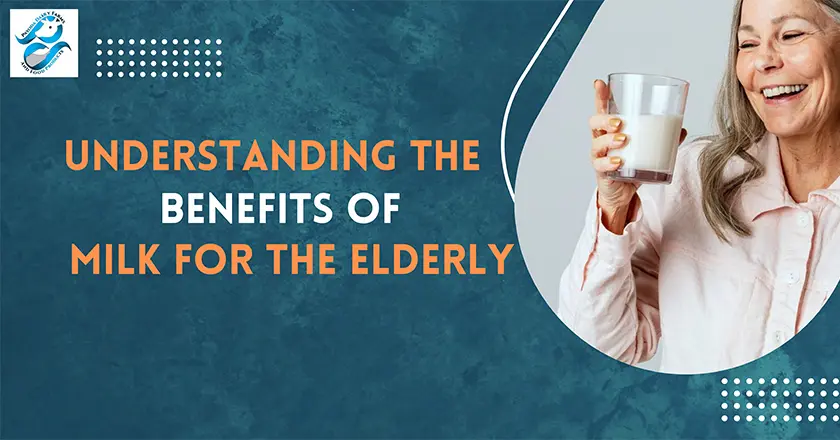Understanding the Benefits of Milk for the Elderly

As we age, maintaining a balanced and nutritious diet becomes crucial for overall health. Milk, known for its rich nutrients, has been a dietary staple for ages. However, concerns often arise regarding its suitability for the elderly. Let's delve deeper into the benefits and considerations of incorporating milk into the daily routine of seniors.
Nutritional Value of Milk
Milk stands as a powerhouse of essential nutrients, including calcium, vitamin D, protein, potassium, and B vitamins. These nutrients play pivotal roles in maintaining bone health, muscle strength, and overall immune function, all of which are particularly important as we age.
Bone Health and Milk Consumption in Seniors
One of the primary reasons milk is recommended for the elderly is its contribution to bone health. With age, the risk of osteoporosis and bone fractures increases. Milk's rich calcium content assists in maintaining bone density and strength, reducing the likelihood of fractures.
Digestibility Concerns: Addressing Lactose Intolerance
A common concern among seniors is lactose intolerance, which may develop with age. However, not all dairy products pose a problem. Pure cow milk, A2 cow milk, and buffalo milk often present fewer issues due to their lower lactose content compared to processed dairy products. Moreover, fermenting milk into yogurt or choosing lactose-free variants can mitigate these concerns.
Assessing the Benefits of A2 Cow Milk for the Elderly
A2 cow milk, known for containing only the A2 beta-casein protein and lacking the A1 beta-casein protein, is believed to be more easily digestible for some individuals, including seniors. Its potential to alleviate digestive discomfort makes it a favorable option for the elderly.
Milk and Heart Health in Seniors
Concerns about saturated fat content in whole milk have led to queries about its impact on heart health, especially in older adults. However, emerging research indicates that moderate consumption of dairy, including whole milk, might not significantly impact cardiovascular health negatively.
Weight Management and Milk Consumption for Seniors
Maintaining a healthy weight is crucial for seniors, and some worry about milk's contribution to weight gain due to its calorie content. However, when consumed in moderation and as part of a balanced diet, milk can provide essential nutrients without drastically impacting weight.
Factors to Consider and Moderation Is Key
While milk offers numerous benefits, individual considerations should not be overlooked. Some seniors may have specific health conditions or dietary restrictions that require adjustments in milk consumption. Consulting healthcare professionals to tailor dietary plans to individual needs is advisable.
The Role of Milk in the Elderly Diet
In conclusion, milk, especially farm-fresh varieties like those provided by Payoda Dairy Farm, can be a valuable addition to the diet of the elderly. Its array of nutrients, particularly in supporting bone health, muscle strength, and immune function, makes it a worthy inclusion. However, moderation and individual considerations play pivotal roles in harnessing its benefits without compromising health.
faqs